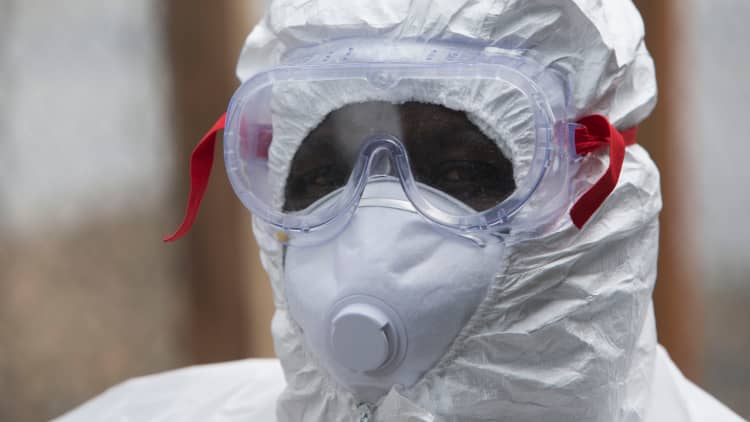
If it feels like we're hearing about new infectious disease outbreaks at an ever faster pace, there's a reason for that.
In "only three years, from '13 to '16, we've had chikungunya in the Caribbean, we've had Ebola in West Africa and now we have Zika in the Americas," Dr. Anthony Fauci, director of the National Institute for Allergy and Infectious Diseases, said in an interview with CNBC. "That's unusual. We've seen emerging infectious diseases forever; we have them now. We will always have them. But to have a cluster like that is a bit unusual."
Before that, just since 2002, the world has coped with SARS, H1N1 influenza — commonly known as swine flu — and MERS, among other outbreaks.
And each time, though responses have accelerated, public health defenses don't galvanize until after the threat has emerged. To get ahead of the next epidemic, a new group has been formed, called CEPI, which stands for Coalition for Epidemic Preparedness Innovations.
More from Modern Medicine:
Why America is losing the battle against its No. 1 killer disease
Finally, new hope to eradicate pediatric brain cancer
Answering this one question could save the lives of 1 million babies
Its founding partners are the Bill & Melinda Gates Foundation, the Norwegian Ministry of Foreign Affairs, the government of India, the Wellcome Trust and the World Economic Forum. And its collaborators include vaccine manufacturers GlaxoSmithKline and Merck.
"The only way to be prepared and ready is to make vaccines against agents that we know exist, that we know have the potential to be outbreak agents like Ebola," said Moncef Slaoui, chairman of vaccines at GSK. "They're waiting and will happen at some point. Let's make vaccines against them during 'peacetime,' if you will."
The coalition has two main goals: get work started on known potential threats, and develop new vaccine technologies that can be deployed faster if a previously unidentified threat emerges.
"What we'd like to see in about five years is that we would have two or three of the key pathogens from the WHO list of serious threats, where we now have a vaccine, which can be stockpiled at the level of hundreds of thousands or maybe a few million doses," said Trevor Mundel, president of global health at the Gates Foundation and a member of CEPI's board.
"That would be enough to cover front-line workers, health-care workers, who might be involved in a first response to such a threat. And we'd like those at least to have, let's say, two new platforms that they are produced on."
Public health experts say it's not a matter of if, but when, the next outbreak occurs. CEPI isn't the only new response to the seemingly accelerating pace of global health emergencies — pharmaceutical companies are contributing in new ways as well — but NIAID's Fauci said these kinds of efforts are vital to protecting the world from whatever comes next.
"A few years ago, in 2013, 2014 when we had Ebola that went into 2015, I was asked constantly: 'Wow, this is really an extraordinary experience with Ebola; do you think this is going to happen again?'" said Fauci. "And no sooner did the words come out of our mouths than Zika came along."
"So we're going to see another outbreak," he said. "Not only another single outbreak, but we'll continue to see outbreaks as the years go by. They're unpredictable in their frequency. We don't know if it's going to happen next month, next year, or a few years from now. But inevitably it will happen, and that's the reason why we need to be better prepared."
Source: World Health Organization




